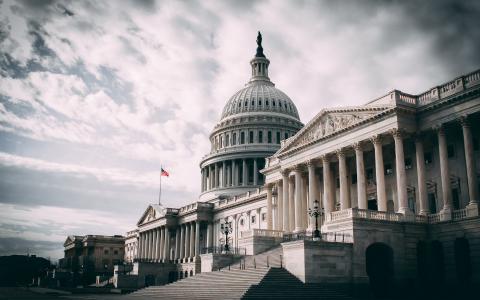
Second stimulus checks could be sent as early as August.
Here’s what you need to know.
Second stimulus checks
If Congress includes a second stimulus check, your second stimulus check could be sent as early as August. It’s all based on this congressional schedule. Here’s why:
- No stimulus check in July: Don’t expect a second stimulus check in early July.
- Congress on vacation: Congress is on recess starting Friday, July 3 and members will not return to work until Monday, July 20.
- Will there be a second stimulus check? During this recess, members will decide whether to include a second stimulus check in the next stimulus.
- Congress back to work: Congress is only in Washington from July 20 to August 7.
- Next stimulus: That means that Congress has 15 working days to approve a second stimulus check.
- August 7, 2020: Congress likely will approve the next stimulus package before August 7. Why? Senate Majority Leader Mitch McConnell (R-KY) has said that he wants to approve the next stimulus before Congress is on recess in August.
- August recess: That’s right. Congress is also on recess from August 10 to September 7.
- Congress back in session: Congress is next in session from September 10 to September 25. While it’s unlikely Congress would wait until September to approve the next stimulus package, it’s a possibility.
When is the earliest second stimulus checks could be sent?
If Congress includes a second stimulus check in the next stimulus package, and that stimulus package is approved on or before August 7, then the next question is when Congress will send second stimulus checks. To be clear, Congress has not authorized a second stimulus check nor has the U.S. Treasury released a possible schedule to send a second stimulus check. What will a second stimulus check look like? There have been many proposals for a second stimulus check, but none have included a distribution timetable. That said, it’s reasonable to use the Cares Act — the $2.2 trillion financial stimulus check that included the first stimulus check of up to $1,200 — as a precedent. Congress approved the Cares Act on March 27, 2020. The Treasury Department started sending the first stimulus check on April 15. That’s 17 days from approval to the first stimulus check being sent. For the second stimulus check, it’s possible that checks will be sent on a similar timetable. Based on the Cares Act precedent, this would imply that second stimulus checks could be sent prior to September 1.
Second round of stimulus checks: Where could this estimated timetable be wrong?
First, Congress may not approve a second stimulus check. To date, Senate Republicans, including McConnell, have said they don’t don’t support a second stimulus check. Second, if Congress approves a second stimulus check, there’s no guarantee that Congress approves a second stimulus check on or before August 7. Third, even if Congress approves second stimulus checks, there’s no guarantee that Treasury will send second stimulus checks on a timetable similar to the first stimulus check. Fourth, given the August recess for Congress and summer vacation, it’s possible that any second stimulus check is not sent until after September 1. Finally, not all eligible Americans have received their first stimulus check. As such, Congress may wait until after Labor Day to ensure that all eligible Americans receive a first stimulus check before they receive a possible second stimulus check.
What factors affect a second stimulus check?
There have been many questions about second stimulus checks. Congress and the president will consider several factors that could influence whether there will be second stimulus checks. These factors may include, but may not be limited to:
- current economic growth
- unemployment rate
- total cost of another stimulus
- November elections
- other economic stimuli
Trump said he not only supports second stimulus checks, but also that he supports a “larger” second stimulus check than the Democrats second stimulus check proposal in the Heroes Act. Last month, he said there would be another stimulus package coming soon. Importantly, Congress and the president must weigh other legislative priorities for the next stimulus. Their shared goals include finding the best way to stimulate the economy. Therefore, Congress may consider a menu of economic priorities such as a payroll tax cut, a return-to-work bonus, a $4,000 travel credit and an infrastructure plan, among others incentives to create more manufacturing jobs, for example.
This article originally appeared on Forbes.



